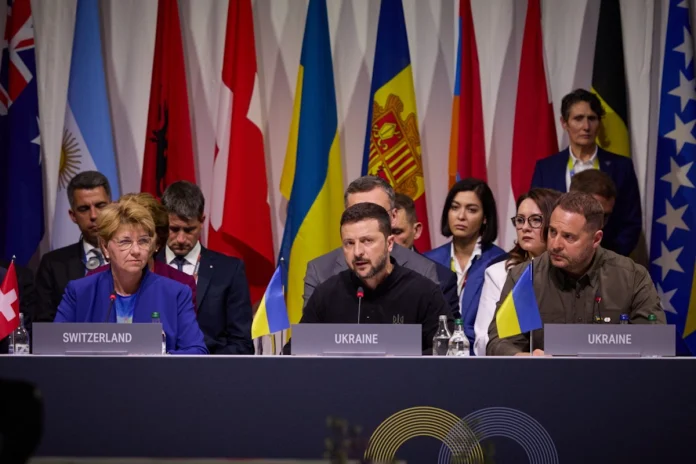Volodymyr Zelensky’s Global Peace Summit in Switzerland was supposed to show the world’s support for Kyiv and emphasise Russia’s isolation, but it turned out the other way round, The Spectator reports.
Russia was not invited. China did not send a delegation. Other major countries, including Brazil, India, Saudi Arabia, South Africa and the UAE, refused to sign the truncated final communiqué.
According to a former senior official in Zelensky’s administration, the Ukrainian leader “hoped the conference would be a new point of international support…. [but] it only showed how much support we have lost in the Global South.”
For almost all countries and global blocs, economic and strategic interests took precedence over principles. The EU took the lead in imposing sanctions but did not ban Russian oil, only capping the price at $60 a barrel rather than $73 for Urals crude. Europe has never imposed sanctions on Russian gas. It continues to import 15 per cent of its natural gas, of which 8 per cent comes from Russia via Ukraine and Slovakia. Last year, Gazprom paid Ukraine $850 million for transit, about 0.46 per cent of Kyiv’s GDP, making the Kremlin one of Ukraine’s biggest taxpayers. Only 8 per cent of EU companies have completely divested themselves of Russian assets.
Zelensky is the greatest salesman, Trump says
Senior US diplomats continue to forbid Ukraine from using long-range weapons on Russian territory (except for missile launch pads). Kyiv was recently advised to stop attacking Russian oil refineries for fear of causing an oil crisis. Donald Trump, meanwhile, recently said he would veto additional aid to Ukraine. He added:
“Zelensky is probably the greatest salesman of all living politicians. Whenever he comes to our country, he leaves it with $60 billion …. And then he comes back and says he needs another $60 billion.”
The Global South wants to keep importing Ukrainian grain and cheap Russian oil. India’s economy has grown thanks to vastly increased imports of Russian oil, much of which is re-exported back to Europe in the form of refined petrol. Turkey imports Russian gas and re-exports it to southern Europe, and has an extensive trade in agricultural and consumer products. The UAE has become a banking centre for Russia, which is under sanctions. China has nearly doubled its trade with Russia to more than $200 billion a year.
Sanctions have no power
The West’s reluctance to cut energy exports has allowed Russia to ignore sanctions. Russia’s GDP will grow more this year than any G7 country. Life in Moscow is almost normal thanks to parallel imports through neighbouring countries. Only 0.4 per cent of Moscow residents of military age have served in the army, compared with about 9 per cent in other regions such as Tuva and Buryatia.
The world seems to be engaged in “pre-peace” positioning. German Chancellor Olaf Scholz recently predicted that the war would end at the “next” peace summit – and that Russia should be invited to it.
Meanwhile, the conference in Switzerland on Ukraine was not a peace negotiation; it requires Russia’s participation, Linda Thomas-Greenfield, US Permanent Representative to the United Nations, said. She added at the UN meeting:
“This summit was not a formal negotiation. At the end of the day, a negotiated end to the war will require both Russia and Ukraine to sit down at the negotiating table in good faith.”
